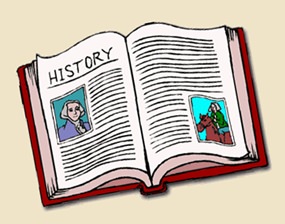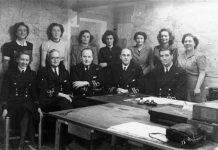Today is Sunday, Dec. 6, the 340th day of 2015.There are 25 days left in the year.
Highlights in history on this date:
1534 – Spanish conquistadors establish presence in Quito, an Inca city in the Andes.
1790 – Congress moves from New York City to Philadelphia.
1857 – British forces recapture Cawnpore in India.
1884 – Army engineers complete construction of the Washington Monument.
1906 – Self-government is granted in Transvaal and Orange River colonies in what is now South Africa.
1907 – Frontier between Uganda and East Africa is defined.

1916 – Bucharest, capital of Romania, falls to German troops.
1917 – Republic of Finland is proclaimed; collision between Belgian and French ammunition ships at Halifax, Nova Scotia, Canada, takes 1,600 lives.
1921 – Britain signs peace treaty with Ireland establishing Irish Free State, and Ireland accepts Dominion status.
1923 – A presidential address is broadcast on radio for the first time as U.S. President Calvin Coolidge speaks to a joint session of Congress.
1929 – Women’s suffrage begins in Turkey.
1938 – France and Germany sign pact on inviolability of their frontier.
1941 – U.S. President Franklin D. Roosevelt appeals for peace to Japan’s Emperor Hirohito — one day before the Japanese attack on Pearl Harbor. He also authorizes the Manhattan Project, which results in the creation of the atomic bomb.
1947 – Everglades National Park in Florida is dedicated by U.S. President Harry S. Truman.
1957 – America’s first attempt at putting a satellite into orbit blows up on the launch pad at Cape Canaveral, Florida.
1959 – U.N. General Assembly says Togoland should receive independence.
1961 – Heavy fighting erupts in Congo’s Katanga Province between United Nations and Katanga forces.
1966 – Britain calls for United Nations sanctions against rebellious Rhodesia, including ban on oil shipments.
1978 – A referendum approves constitution returning Spain to democracy.
1984 – Death toll rises to 1,600 from gas leak from U.S.-built pesticide plant in Bhopal, India.
1987 – Bangladesh government dissolves Parliament amid opposition campaign to topple President Hussain Mohammad Ershad’s administration.
1988 – Sources say ethnic violence kills at least three people and injures six others in southern Soviet republics of Azerbaijan and Armenia.
1990 – Gen. Hussain Mohammad Ershad, who ruled Bangladesh for nine years after coming to power in a coup, steps down at the height of a pro-democracy movement.
1998 – Six years after staging a bloody coup attempt, former Lt. Col. Hugo Chavez is elected president of Venezuela, dealing a blow to the establishment that ruled the country for 40 years.
2002 – Israeli forces kill 10 Palestinians, including two United Nations Relief and Works Agency (UNRWA) school employees, during a pre-dawn incursion into the Bureij refugee camp in the Gaza Strip.
2004 – Islamic militants set off explosives and shoot their way into the heavily guarded U.S. consulate in Jiddah— a bold assault that shows Saudi Arabia’s crackdown on terrorists has not succeeded.
2007 – A land mine explosion blamed on Tamil separatists tears through a passenger bus crowded with civilians in northern Sri Lanka, killing at least 16 people and wounding 22 others.
2010 — A French court convicts Continental Airlines and one of its mechanics of manslaughter for setting off a chain of events that sent a supersonic Concorde crashing into a hotel outside Paris a decade ago, killing 113 people and marking the beginning of the sleek jet’s demise.
2012 — Egyptian President Mohammed Morsi offers nothing concrete to defuse the country’s worst political crisis in nearly two years in a nationally televised speech, refusing to rescind a disputed constitution drafted by his allies or his decrees giving him near absolute powers.
2014 — An American photojournalist and a South African teacher are killed during a high-risk U.S. raid to free them from al-Qaida-affiliated militants in Yemen.
Today’s Birthdays:
Joseph-Louis Gay-Lussac, French physicist and chemist (1778-1850); Joyce Kilmer, U.S. poet (1886-1918); Ira Gershwin, U.S. lyricist of Broadway musicals and films (1896-1983); Gunnar Myrdal, Swedish economist and sociologist, Nobel laureate (1898-1987); Alfred Eisenstaedt, U.S. photojournalist (1898-1995); James Braddock, U.S. boxer (1905-1974); Peter Handke, Austrian novelist and playwright (1942–); James Naughton, U.S. actor (1947–);Judd Apatow, U.S. director/writer (‘1967–)
Thought For Today:
In dreams begins responsibility — William Butler Yeats, Irish Nobel Prize-winning poet (1865-1939
Copyright 2015 The Associated Press. All rights reserved. This material may not be published, broadcast, rewritten or redistributed.




